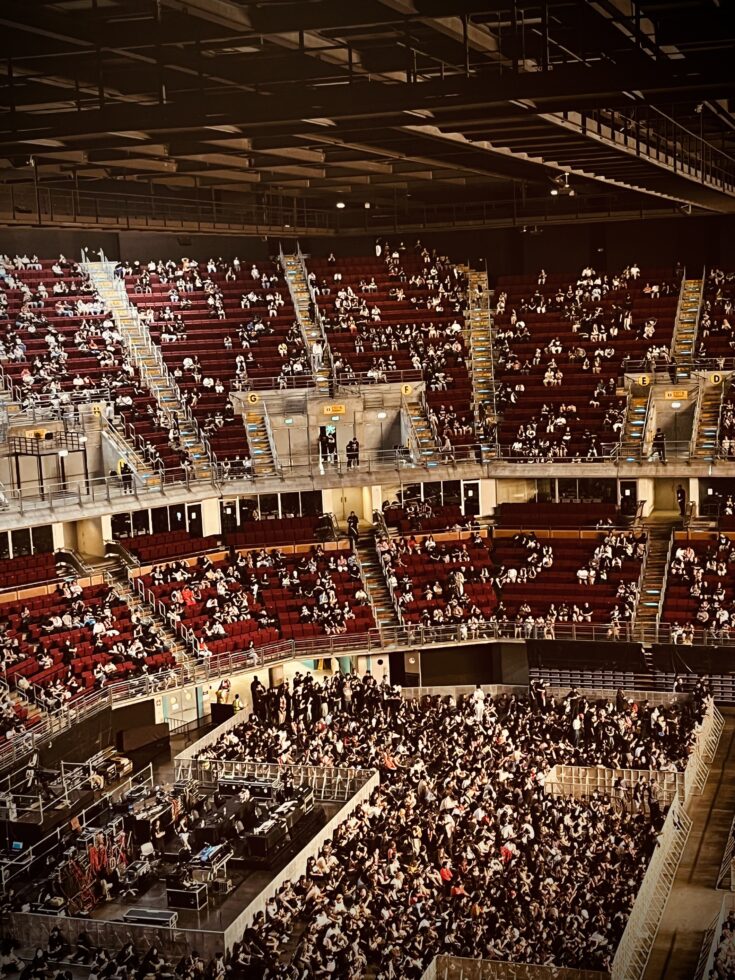
The curtains were shut and you were lying on your bed, hiding away from the world. You really did not know what was the matter, but you felt kind of sad. You had no interest in what was next, you just missed that night…the night you were singing and dancing with your fellow audience as your favorite band was performing.
It was your first concert seeing them play live. You could not believe the energy you received from being around the people who loved the same kind of music. Your heart was filled with joy and excitement. After the show was over, though, you started to feel blue.
Research showed that feeling down after attending a highly anticipated event like a concert is natural. One might feel sad and longing for the similar pleasurable emotions he or she felt while being in a show because high excitement gives high endorphin and dopamine releases and people continue to crave for more.
Concerts are a shared experience, therefore, some people can miss the sense of belonging they felt among other fans and feel disconnected from the world.
Some of you who went to the show of Norwegian artist Peter Elias in June when he performed in Taiwan or joined a music festival featuring Danish artist LYDMOR in Vietnam in October might have similar experiences in which you felt like you had the time of your life at the event and thought you would never reach “that high” again.
If you have been through emotional states similarly as mentioned above, you might have “Post-Concert Blues.” People experiencing post-concert blues can have symptoms such as feeling sad or empty, disinterest in activities, trouble concentrating or making decisions, lacking energy, having trouble sleeping, and changes in appetite.
“Post-Concert Blues” or “Post-Concert Depression” is not a medical diagnosis, however, feeling low for more than two weeks can affect a person’s daily life and cause emotional and physical problems. It can also lead a person to suffer from clinical depression in the future.
Experts shared some practical approaches to treat yourselves from post-concert sadness when life seems “listless” and “unenjoyable” after a big night. Instead of grieving that the night ended, finding ways to remember it fondly is a start. The key is to be grateful for the opportunity you had and “have good memories of it.”
Talking and sharing memories about the concert with your friends are helpful too. You can keep in touch with other fans, either in person or online and must note to avoid isolation. Because having some alone time by yourself once in a while is essential and positive, but too much time being isolated gives the opposite result.
“Surrounding yourself with others is a superior coping method” for post-concert blue and other related- depression symptoms. Most of the time, one feels depressed because he or she does not leave the house and be social. As much as one loves being alone, human interaction is important.
Lists of cliche ways to stay healthy, both physically and mentally like regular exercising, eating a balanced diet, and adjusting sleep habits are also included if you want to feel better. They are “cliche,” but also facts. A sign saying that something is wrong occurs every time when we start to neglect these principles of life, doesn’t it?
Furthermore, planning another event or more consistent exciting activities for your daily life can be beneficial, so you have something to look forward to.
It will take time and patience to cope with post-concert blues, certainly. But, do not let a perception that happiness will not be as achievable as before stop you.
Happiness can come from the concert (depending on personal preference) as well as from simple things in life. It can be interesting to try to look for small fun in little things. Just “don’t be afraid to dive, be afraid that you didn’t try.”
References:




